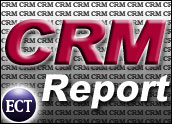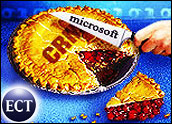
Small businesses have typically shied away from complex software deployments. CRM, for instance, still has a low penetration rate in this end of the market despite the number of offerings from such firms as Microsoft, Salesforce.com, FrontRange, Sage and others.
These firms’ evangelization efforts have made little headway among small businesses, according to a recent report from AMI-Partners.
Competing Against Excel
One out of six small businesses are currently using a CRM application, and the same percentage of businesses plan to adopt a CRM system in the next 12 months, the report stated.
“The biggest competition to companies that are targeting small businesses are not other companies but homegrown solutions or no solution at all,” Yankee Group analyst Sheryl Kingstone told CRM Buyer. “It’s too expensive and too complex for them. That is why they are still using Excel spreadsheets.”
Other enterprise categories fare better, but only slightly: While almost 75 percent of small and medium-sized businesses (SMBs) use business accounting software, just 11 percent of the smaller companies currently use it, and 11 percent plan to use an ERP (enterprise resource planning) or supply chain application in the next 12 months, the report noted.
Mid-Market More Accepting
Mid-market firms are more open to these applications, AMI-Partners finds. Almost 40 percent of respondents in this category use CRM solutions today, and almost one quarter plan to adopt CRM in the next 12 months. Among the various industries surveyed, professional services outstrips other sectors in CRM adoption and spending.
Similarly, more than one third of survey respondent are currently using ERP or a supply chain application. Additionally, just over one quarter are planning to deploy these solutions in the next 12 months.
In the ERP category, manufacturing, wholesale and professional services medium-sized businesses are spending significantly more on these applications than counterparts in other sectors.
Additionally, medium-sized businesses are recognizing the value of integrated suite products, according to the report. Seventy-five percent of those surveyed use an accounting/financials module that is part of a larger solution suite, noted Sau Lam, a research analyst at AMI-Partners.
“This data indicates that U.S. medium-sized businesses have made the connection between streamlining and automating business processes, and maximizing productivity and value in the market,” Lam said.
Similar Findings
AMI-Partners’ findings reflect multiple other studies. For instance, it is now debatable whether or not more large companies — compared with small companies — are deploying Software as a Service (SaaS) applications.
Sixty-three percent of companies with more than 1,000 employees have adopted some kind of on-demand technology, according to a recent report by Nucleus Research. This is a surprising trend, given that SaaS was initially marketed as a low-cost application.
























































